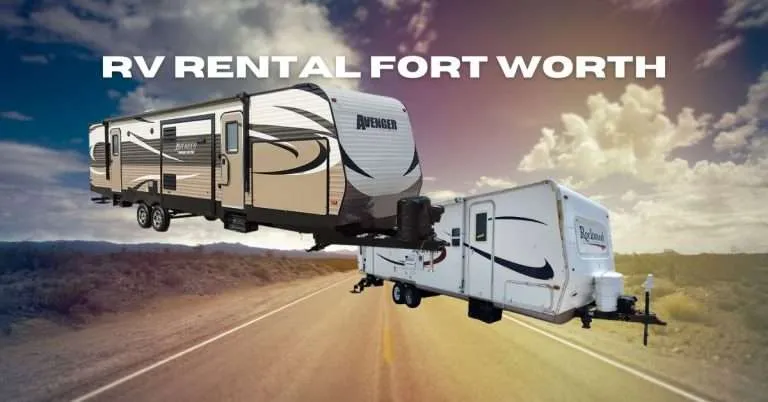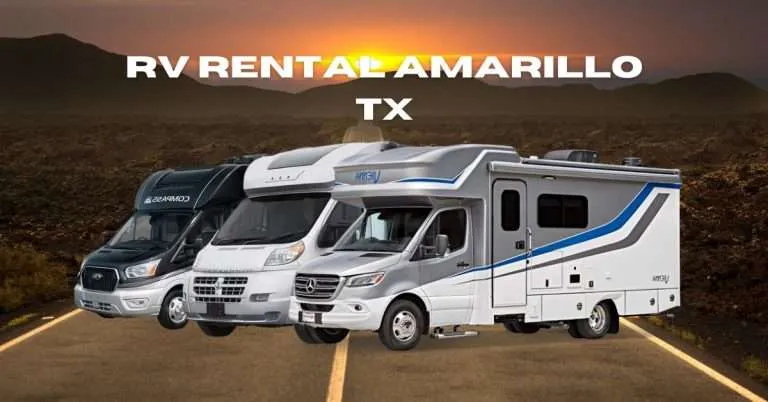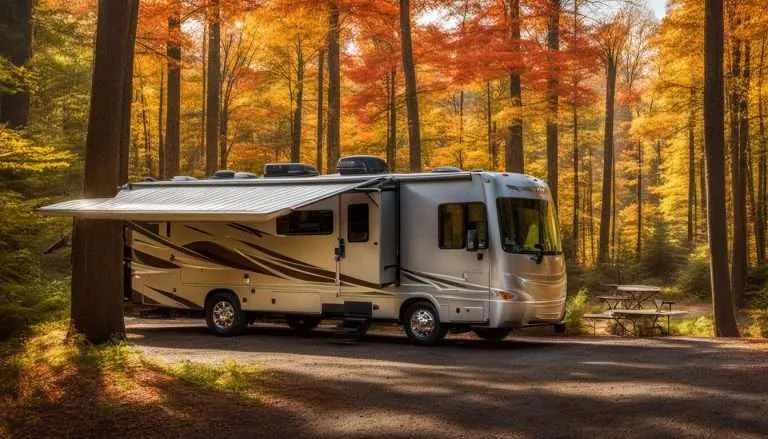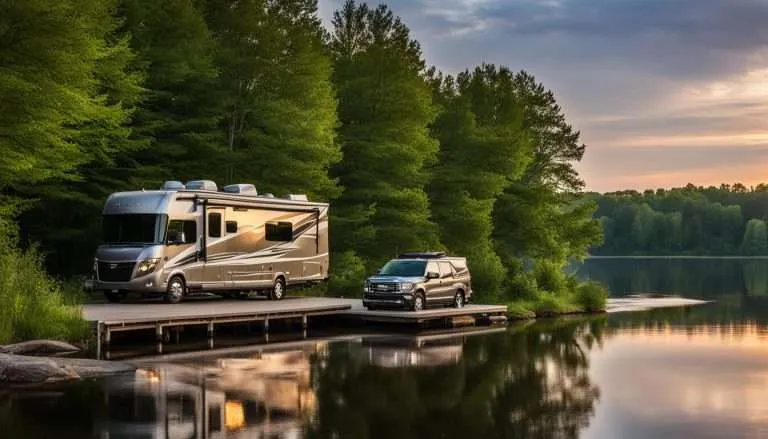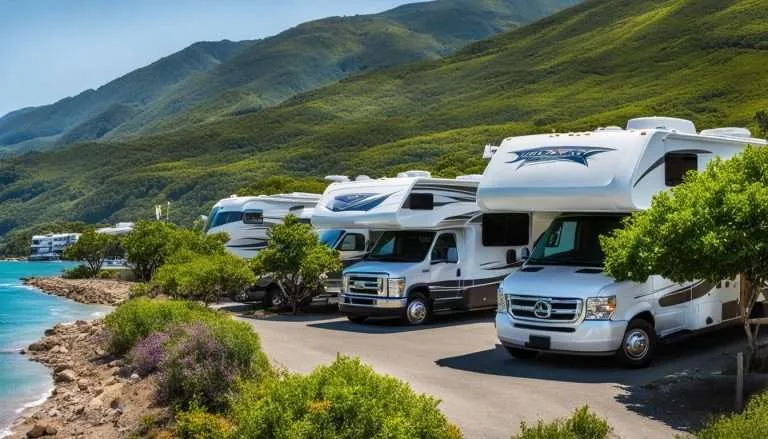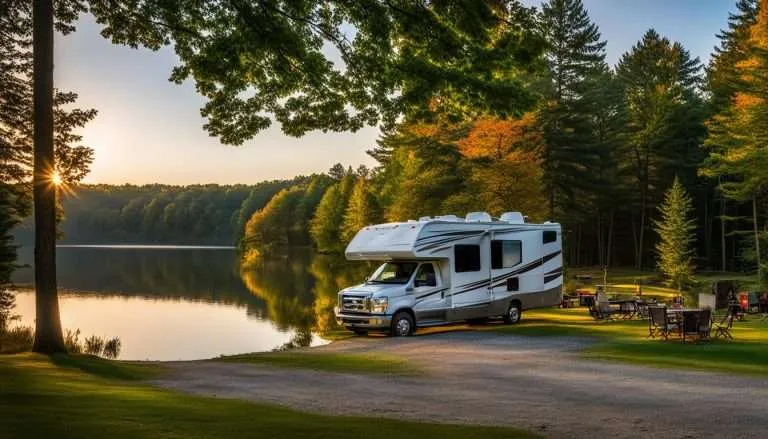How Much Does an RV Inspection Cost: Budgeting for Your Next Adventure
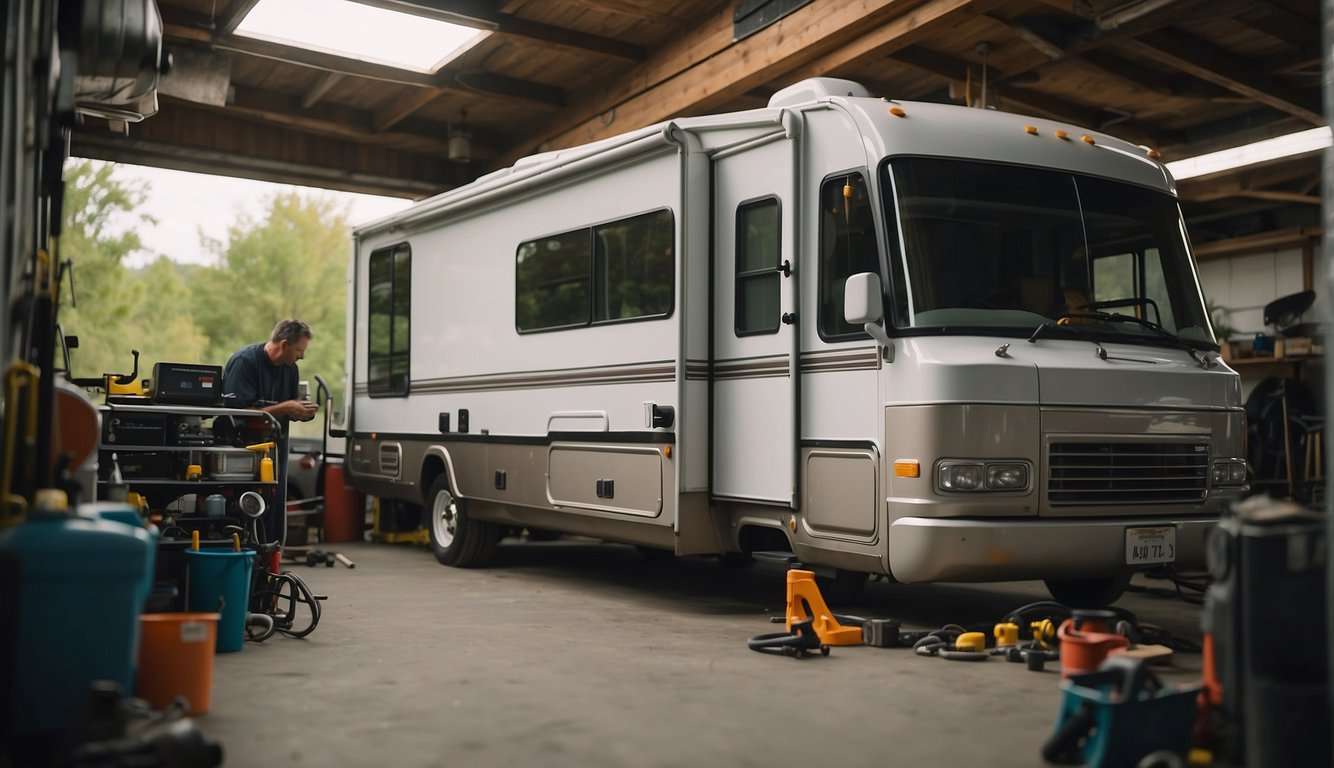
When considering a purchase or maintenance of an RV, one critical step that shouldn’t be overlooked is getting an RV inspection.
Much like home inspections for real estate transactions, these checks are essential to ensure that your recreational vehicle is safe and roadworthy.
The cost of an RV inspection can be influenced by several factors, including the size of the motorhome, the type of inspection needed, and the level of detail that the inspection entails.

An RV inspection can range from basic safety checks to comprehensive examinations of all systems and components.
It’s not only about peace of mind but also about financial prudence. Investing in a thorough inspection before buying can potentially save you from costly repairs down the line.
The mechanic’s expertise, the vehicle’s condition, and the geographical location can also play a role in determining the pricing. It’s important for me to help you get a clearer picture of what budgetary range to expect when seeking an RV inspection.
Key Takeaways
- RV inspection costs may vary based on the RV size, inspection depth, and location.
- A thorough inspection prior to purchase can help identify potential issues that could be costly to repair later.
- The mechanic’s expertise and the type of inspection conducted are crucial in assessing the overall value of the service.
Understanding RV Inspection Costs
When I first considered getting an RV inspection, I was curious about how much it would cost. The RV inspection cost can vary widely, starting as low as $150 and sometimes exceeding $1,200.
To me, a pre-purchase inspection is key for ensuring you’re making a wise investment, providing that peace of mind.
Here’s a brief overview of what to expect:
- Level 1 Inspection: This is a basic overview, often visual, checking for glaring issues.
- Level 2 Inspection: A more in-depth examination including systems checks, which can be costlier due to more labor involved.
I found out that inspections are categorized by levels, and the cost generally corresponds to the thoroughness of the inspection.
A certified RV inspector, especially one certified by the NRVIA, can provide a detailed report on the condition of the RV, but their expertise will add to the cost.
Fees include labor, which is the time spent by the inspector evaluating the RV. Though this might add to the upfront cost, it can save money in the long run by identifying potential issues early.
Here’s a quick breakdown:
| Type of Inspection | Expected Cost |
|---|---|
| Level 1 | $150 – $300 |
| Level 2 | $300 – $1,200 |
Remember, paying for a quality RV inspection buys you more than just a service; it buys trust in your vehicle and can help prevent unexpected repair costs in the future.
Types of RV Inspections
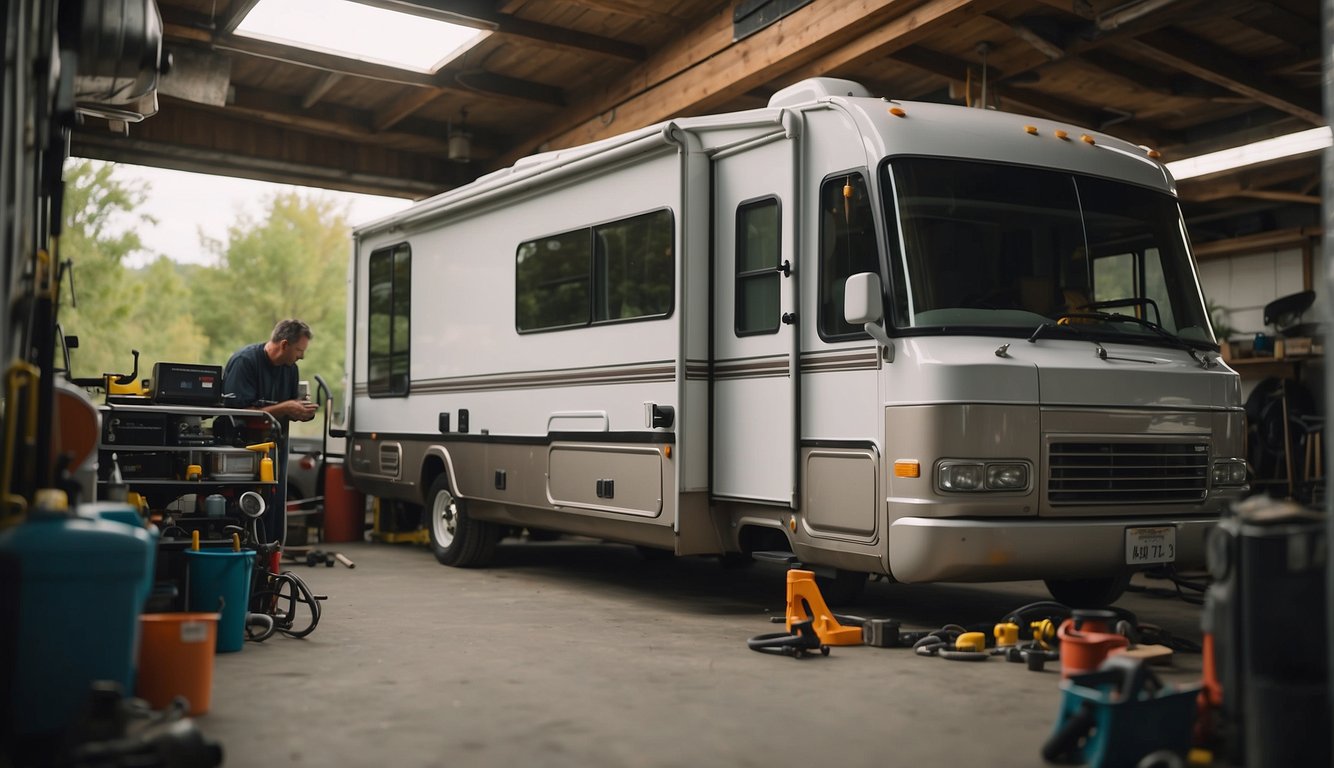
When you’re considering an RV inspection, it’s important to understand the various types that are available. Whether it’s for ensuring peace of mind before a purchase or meeting legal requirements, there’s a specific inspection type for your needs.
Pre-Purchase RV Inspection
A pre-purchase RV inspection is essential if I’m looking to buy a used RV. This inspection is comprehensive and ensures the RV is roadworthy and the systems are functioning properly. By having this done, I can avoid costly repairs down the line.
Information on what a pre-purchase inspection entails can be found on various resources like RVshare.
Mandatory State Inspection
In some states, a mandatory state inspection is required for motorhomes. This makes sure the RV complies with specific state regulations regarding safety, emissions, and roadworthiness. Understanding the scope of mandatory state inspections is crucial, and more details are available at Progressive.
Safety and Emissions Inspection
Finally, there is the safety and emissions inspection, which is often part of the mandatory state inspection. This includes a safety check of key components like brakes and lights, and an emissions test to ensure that my RV meets environmental standards.
These are critical for not only legal compliance but for the safety of everyone on the road.
What to Expect During an RV Inspection
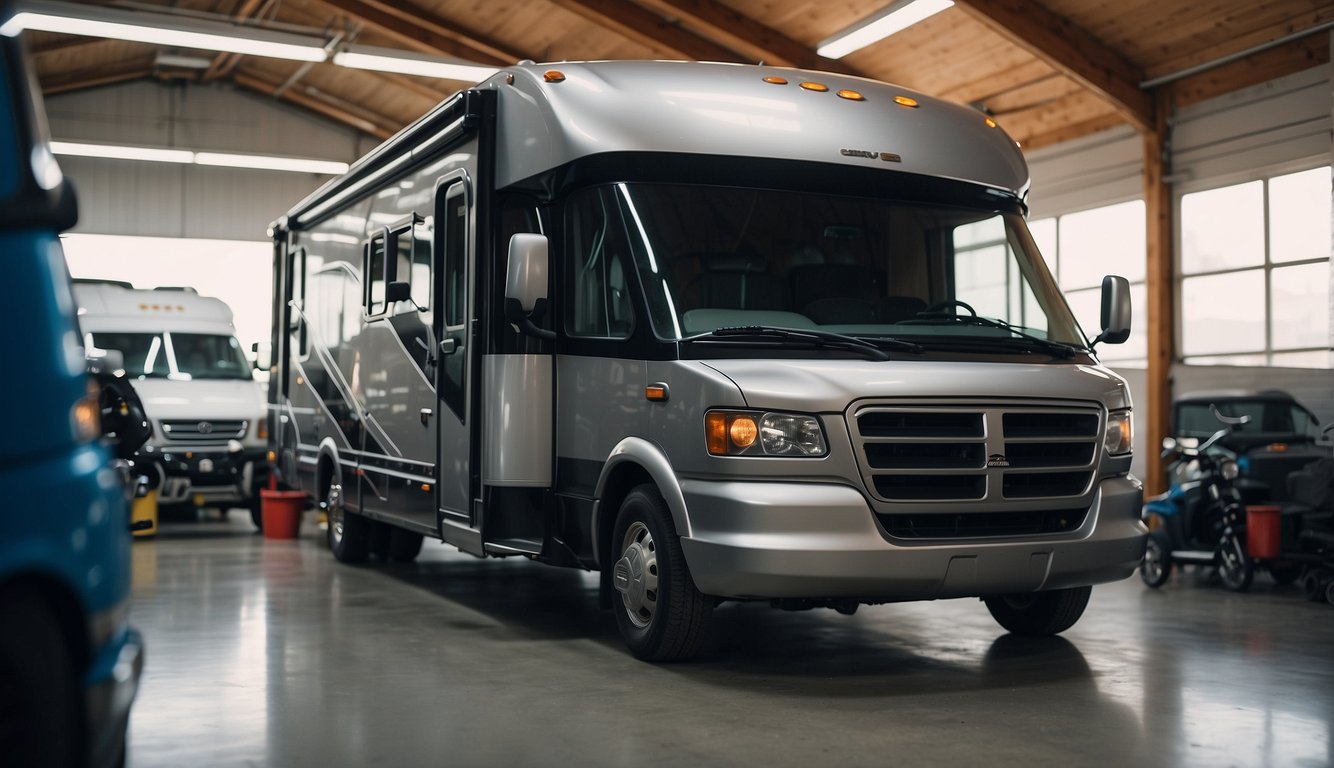
When I inspect an RV, my aim is to thoroughly assess its condition both inside and out, from the mechanical components that keep it running to the living spaces where you’ll spend your time. I make sure to check each detail that contributes to your RV’s safety and functionality.
Exterior Inspection
The exterior inspection is all about the integrity of the RV’s structure. Here’s what I pay close attention to:
- Paint and body: I look for signs of damage such as dents or scratches, and check the quality of the paint to see if it’s fading or peeling.
- Tires: I inspect the tread depth, look for any signs of uneven wear, and check the tire pressures against the manufacturer’s recommendations.
- Windows and Seals: It’s essential to inspect all the seals around windows and doors for any leaks or weathering that might let in water.
- Undercarriage: Rust and corrosion are red flags, especially around the suspension and any exposed wiring.
- Lighting and Electrical Systems: All external lights and indicators are tested to ensure they’re working as they should be.
Interior Inspection
During the interior inspection, I focus on both the comfort and safety aspects:
- Appliances: Every appliance is tested to make sure everything is in working order.
- Batteries and Electrical Systems: This includes testing sockets, switches, and checking the inverter if there is one.
- General Condition: I look for signs of wear and tear or previous water damage, which might indicate leaks that have gone unnoticed.
Engine and Mechanical Inspection
Getting into the engine and mechanical inspection, my main concern is road worthiness:
- Engine: I start the engine to listen for unusual noises, check for smooth operation, and verify that all fluid levels are correct.
- Transmission and Brakes: The responsiveness and condition of both the transmission and brakes are critical for safety.
- Generator: If there’s a generator present, I’ll run it to ensure it operates well and can handle the load it’s rated for.
Overall, my inspections are comprehensive, with a friendly approach to ensure that you have a clear picture of the RV’s condition, helping you make an informed decision.
Choosing an RV Inspector
When I’m in the market for an RV, I always consider a thorough inspection by a professional RV inspector. Choosing the right inspector is essential for an objective assessment of the RV’s condition. I look for a certified inspector, ideally one that’s NRVIA Certified. This certification gives me confidence in their training and standards of practice.
Here’s how I typically approach the selection process:
- Research: I start by searching for local inspectors with solid experience in RV inspections.
- Ask for Credentials: It’s important for me to verify that they are certified. I’m particularly keen on those who are NRVIA Certified RV Inspectors because of the rigorous standards they uphold.
- Read Reviews: I seek out reviews to gauge the level of trust and satisfaction other RV buyers had with their services.
- Interview Prospects: A brief conversation with potential inspectors helps me understand their level of professionalism and experience. I ask about their process and what kind of report they provide.
I also consider the following:
- Objective Reporting: An RV inspector’s duty is to provide an unbiased report on the RV’s condition, helping me make an informed decision.
- Trust: It’s crucial that I feel I can trust the inspector’s findings without question.
By being diligent in my selection, I aim to ensure that I have a comprehensive understanding of the RV’s condition before making a purchase.
Additional Considerations for RV Inspection Costs
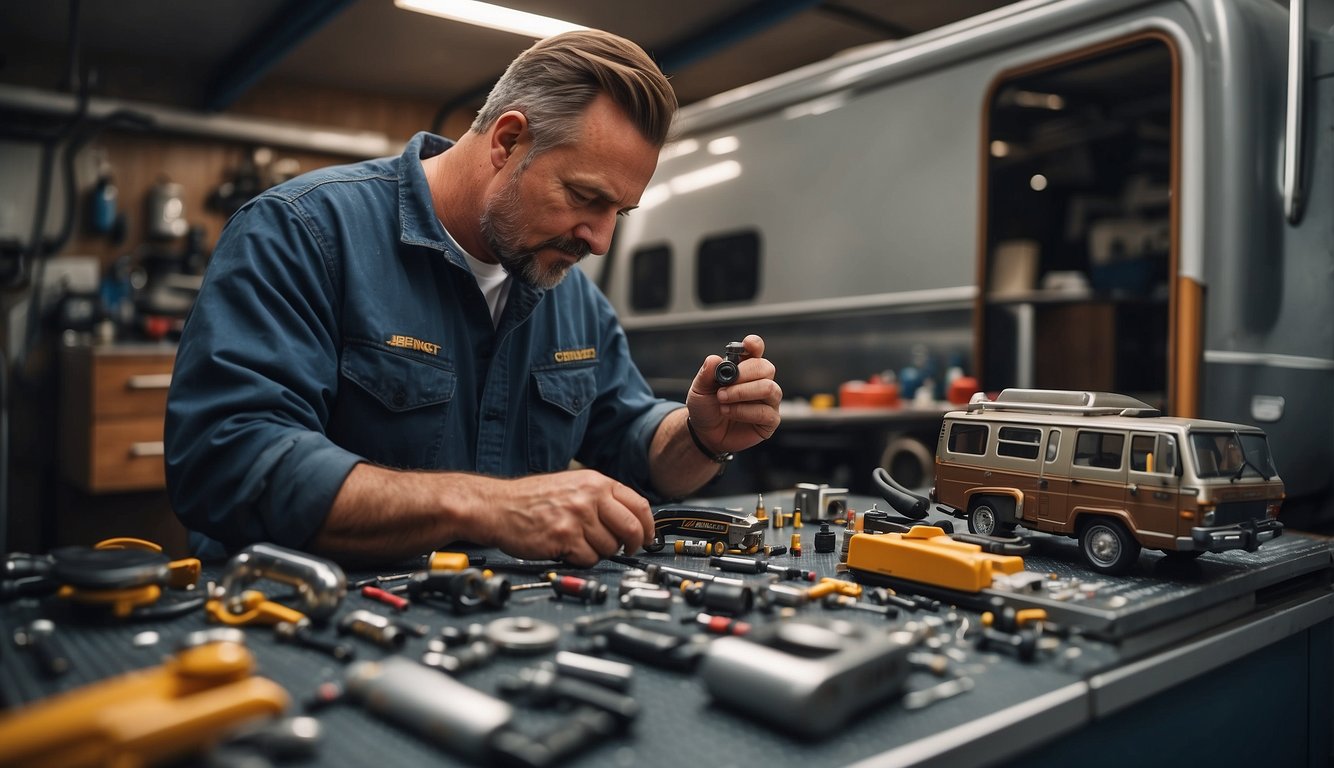
When I’m looking at RV inspection costs, I consider several factors that can affect the final price. Here’s what I keep in mind:
- Location: Where I’m getting the inspection can impact the cost due to various regional pricing.
- Type of RV: Costs can vary depending on whether I own a travel trailer, motorhome, or a class B campervan. Generally, the larger or more complex the RV, the higher the inspection cost.
Dealer vs. Private Seller Inspections:
- Inspections through RV dealers might come with a certain standard and potentially a higher price tag.
- Inspections from private sellers could be less expensive, but I need to ensure they’re thorough.
Inspecting a Used RV:
- When dealing with a used RV, the cost can also include checking for past RV repairs.
- More in-depth examinations might lead to a discovery of issues that can affect the warranty or future repair costs.
Regulatory Inspections:
- DMV: Sometimes the DMV requires an inspection, which may have a set cost.
| RV Type | Expected Cost Range |
|---|---|
| Travel Trailer | $100 – $750 |
| Motorhome (Class A) | $200 – $1,200 |
| Class B Campervan | $150 – $600 |
I also consider the current market demand for inspections, as this can cause seasonal fluctuations in the price.
Lastly, I keep in mind the reputation of the inspector or institution conducting the inspection, as this can be a good indicator of the quality and thoroughness of the service provided.
- Why Do My RV Lights Dim and Brighten? Understanding Voltage Fluctuations - February 8, 2024
- What Happens When RV Furnace Runs Out of Propane: Avoiding the Chill on Your Trip - February 8, 2024
- How Much Does an RV Inspection Cost: Budgeting for Your Next Adventure - February 8, 2024

